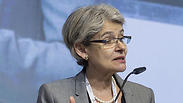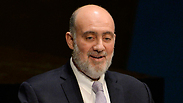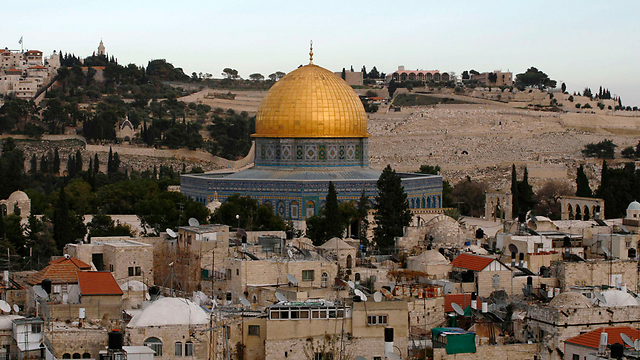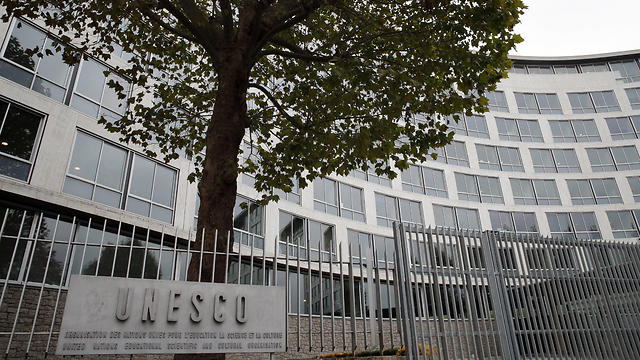

The United Nations Educational, Scientific and Cultural Organization (UNESCO) has been treating Israel with hostility in recent years. Time and again, the organization adopts anti-Israel resolutions denying the Jewish people’s connection to the Land of Israel and Jerusalem and defining Jewish sites as "Palestinian heritage sites."
Time and again, Israel fails to prevent these resolutions, and time and again, it settles for complaints once they are adopted.
Sometimes, it seems as if Israel is suffering from some kind of personality disorder which makes it fall in love with complaints about a disease rather than cure it.
The elections for the post of UNESCO director-general will be held in two weeks. This is Israel’s chance to show some initiative and active diplomacy, but it seems to have been caught off guard.
Of the nine nominations for the position, four come from Arab countries—Qatar, Iraq, Lebanon and an Egyptian representative who is in favor of applying Sharia laws. What we do know is that the election of an Iranian chairperson has already been secured. The only education a Qatari-Iranian coalition in UNESCO will offer the world is education to terror, hatred and extremism.
The State of Israel is well aware of that, as UNESCO concerns many bodies—government ministries, local authorities and plenty of organizations and NGOs. Everyone knows how important these elections are, but they seem to be continuing their summer vacation and have yet to do a thing to promote the election of a professional and decent director-general for the organization.
This is exactly where Israel must use diplomatic counter-terrorism: identify the challenge, detect ways of action and create coalitions that will make it possible to reach the desired result.
Instead of fighting specific decisions, Israel must try to change the agenda. Instead of letting the Arab states hijack UNESCO for anti-Israel incitement purposes, Israel must try to influence the organization’s leadership. Instead of complaining in retrospect, Israel must wake up and act.
Israel is not the only country that would benefit from this; so would the entire world. A professional director-general would be committed to advancing culture in the world, and not medieval culture. He would work for the preservation of heritage sites rather than for their destruction. He would promote literature, not book-burning.
A professional director-general who sees the values of education, science and culture before his eyes would know that resolutions which deny the Jewish people’s connection to Jerusalem have no room in the organization, would recognize the Jewish people’s contribution to global culture over thousands of years and would not lend a hand to anti-Israel bias.

There are two candidates who meet this description, professionals of great stature. People who are working to promote education, culture and science in their countries and in international bodies, and even in UNESCO itself. Candidates who represent countries from different continents whose common ground is the rich cultures they represent. These candidates will be able to restore UNESCO’s glory and advance the universal and enlightened values the organization was established for.
Israeli officials know these people, know how talented they are and how much they could help the organization—and Israel as well. Instead of being polite, instead of thinking what the world will say if we promote the right candidates, Israel must demonstrate some chutzpah and initiative and put its interests first.
Some will say that Israeli support could be a double-edged sword, as it will prompt other countries to act against the candidate favored by Israel. But that’s no reason to sit idly by. Our diplomatic toolbox contains many diverse tools that could be used to try to influence the election: Alliances with different countries, offers for cooperation and plenty of ways to operate above and below the radar.
We are in the Jewish month of Tishrei, and Israelis like to postpone things until “after the Holy Days.” In UNESCO, we can’t afford to do that. We must act now, before it’s too late.
Amb. Ron Prosor, Israel’s former permanent representative to the United Nations, is the Abba Eban Chair of International Diplomacy at the Interdisciplinary Center Herzliya (IDC).

















